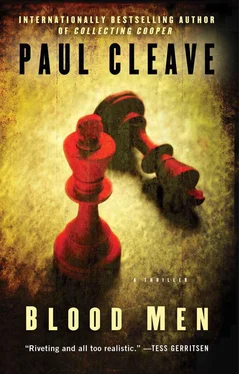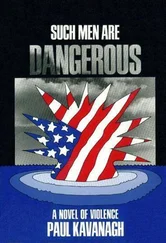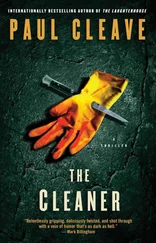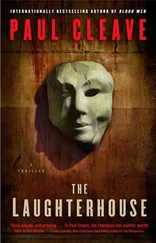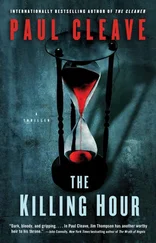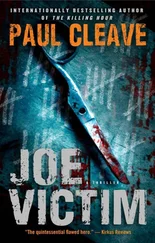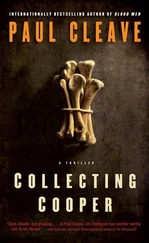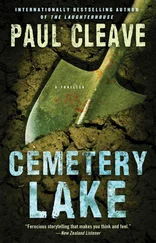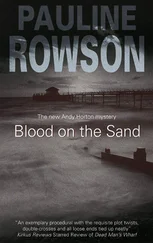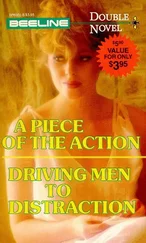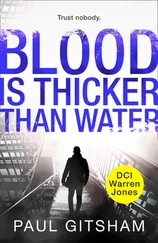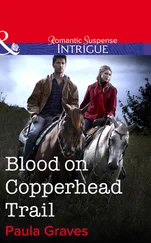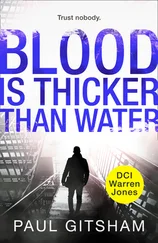Paul Cleave - Blood Men
Здесь есть возможность читать онлайн «Paul Cleave - Blood Men» весь текст электронной книги совершенно бесплатно (целиком полную версию без сокращений). В некоторых случаях можно слушать аудио, скачать через торрент в формате fb2 и присутствует краткое содержание. Год выпуска: 2010, ISBN: 2010, Издательство: Atria Books, Жанр: Триллер, на английском языке. Описание произведения, (предисловие) а так же отзывы посетителей доступны на портале библиотеки ЛибКат.
- Название:Blood Men
- Автор:
- Издательство:Atria Books
- Жанр:
- Год:2010
- ISBN:1439189617
- Рейтинг книги:3 / 5. Голосов: 1
-
Избранное:Добавить в избранное
- Отзывы:
-
Ваша оценка:
- 60
- 1
- 2
- 3
- 4
- 5
Blood Men: краткое содержание, описание и аннотация
Предлагаем к чтению аннотацию, описание, краткое содержание или предисловие (зависит от того, что написал сам автор книги «Blood Men»). Если вы не нашли необходимую информацию о книге — напишите в комментариях, мы постараемся отыскать её.
Blood Men — читать онлайн бесплатно полную книгу (весь текст) целиком
Ниже представлен текст книги, разбитый по страницам. Система сохранения места последней прочитанной страницы, позволяет с удобством читать онлайн бесплатно книгу «Blood Men», без необходимости каждый раз заново искать на чём Вы остановились. Поставьте закладку, и сможете в любой момент перейти на страницу, на которой закончили чтение.
Интервал:
Закладка:
“So how much?”
“About five million.”
“And how much was taken?”
“We still have to add up what’s here-but if you want a quick estimate, we think we’re talking somewhere around three million dollars.”
“And the procedure in a bank robbery?”
“It’s simple. Do what the robbers tell you to do. Press the silent alarm, and if you have to come out to the vault, make sure you load in the dye packs.”
“And they loaded them?”
“Yes. They would have gone off by now.”
“How do they work?”
“They’re magnetic. We store them next to a magnetic plate that controls them. You take them away from that, and it activates a timer. They explode five minutes after they’ve been moved. It ruins all the money, covers it all in red ink. Covers the robbers in ink too.”
“How long until you can get an amount?”
“An hour. Two at the most.”
The blocks of remaining cash vary between orange, blue, green, and purple-fives, tens, twenties, and fifties. Schroder wonders exactly what three million in cash would look like physically. He wonders how heavy the bags would have been.
“So the tellers loaded the bags,” he says, thinking out loud.
“Yeah. Nobody else came back here.”
“The robbers never examined the bags, right? According to witnesses, and looking at the footage, they grabbed the bags and another victim and left.”
“So?”
“So why load the bags with hundreds?”
“What?”
“I don’t see any red blocks of cash-the hundreds. The bank tellers could have loaded the bags with any amount. The bags would have weighed the same. Why not load them up with five- or ten-dollar notes?”
“Maybe they thought the robbers would check.”
“Even so, they could have loaded the smaller amounts on the bottom. The robbers would never have known unless they tipped it all out.”
“Maybe they were scared and thought that was the way to go.”
“Maybe,” Schroder says.
“It’s a good point though,” Wellington says, “and something we might consider implementing in case, god forbid, this ever happens again.”
“You do that,” Schroder says. “And get me some amounts,” he says, and turns his back on the vault and heads upstairs.
chapter eight
I was eight years old when I had the urge to kill my first animal. I was nine before I finally did it. It was about a month before my dad got taken away. I don’t know what created the urge. I think it’d been there all along, sleeping deep inside me, hidden-then one day woken.
The police showed up at the house on a cold July day. The sun was out but had lost the battle to winter; the air was so icy cold, the mist that formed in front of your face when you exhaled could almost be snatched up and broken in two. It was the kind of day you didn’t want to get out of bed for. The trees were bare and the leaves had turned to slush on the ground, slush that would stick to your shoes, then get left behind on the carpet inside. It was a Wednesday morning. Usually the most exciting thing about Wednesdays was that they weren’t Mondays. Of course this Wednesday started out a whole lot different. It began with me standing at the window in my school uniform watching the police cars pull up, sure they were there for me, that somehow, in some way, somebody had found out it’d been me who’d killed the neighbor’s dog. I watched the cars come to a stop and men spill into the driveway, and I thought about running, just heading out the back door and jumping the fence, only I didn’t know where I’d go. No, rather than run, I would lie.
The police surrounded the house. They came up to the front door. I was crying when my mother answered it. I had moved into my bedroom and was standing behind the door, listening, shaking. The men came inside and spoke to my dad. I didn’t understand what was going on, why the police were coming to take my dad away for something I had done, and as hard as I tried to tell them the truth, I was too scared to say the words.
I came out from the bedroom in time to see them put handcuffs on my dad. I cried harder. I wanted to confess but didn’t. I didn’t understand at the time, but the police had come for an entirely different reason-a reason that involved the niche my father had carved out for himself, one that included a list of prostitutes and a very specific hobby.
I didn’t go to school that day. Instead my mum’s sister came to sit with me and Belinda while Mum went to the police station to learn what was going on. She was gone all day. A year later, after she was dead, her sister didn’t want anything to do with me or Belinda ever again.
I don’t know what kind of dog it was I killed in that month before Dad got taken away. It was certainly big enough, and dark enough, and most of the time angry enough. All it ever seemed to do was make noise. It’d howl at the moon and bark at the sun and growl at the breeze. The barks were high-pitched yaps that kept on coming, one after the other, scratching into my head like nails. The growls were low and threatening, scary, and the howls were long and painful. My neighbor never did anything to shut it up. Most times my neighbor wasn’t there. He’d leave this dog of his chained to a rusty old stake hammered deep into the backyard. If the dog was lucky he’d sometimes get food and if he was extra lucky then sometimes he’d get water for company. Neighbors would open windows and doors and yell at the dog to shut up, but the frequency dropped off over the years as they gave up. In the summer the yard was hard-baked dirt, cracked into jigsaw patterns, and in the winter it was dark with mud and cold with frost. The dog was too hot in the summer and too cold in the winter and one or the other during the months between. I didn’t know who to hate more, the dog or the owner, and in the end I hated them pretty much equally. The dog was hardwired to bark at things, and my neighbor was hardwired to treat the dog badly.
The urge grew slowly. I’d be at school staring at a math problem then suddenly I’d think about him, that dog, and I’d think about how great it would be if that dog could be divided into two. I’d get that thought a few times at school, and I’d get it plenty more times at home, and the thought never made me sick. At night I’d shake, my hands twitching as the dog barked, wondering why my dad didn’t go and do something. Of course I didn’t know it-but my dad couldn’t do anything about it. He couldn’t draw any attention to himself.
The urge kept growing. It reached a point where it was never far from my thoughts. It affected my schoolwork. My marks were slipping, my homework was suffering-if things didn’t change I’d end up leaving school when I was fifteen and spend my life bouncing between being unemployed and unemployable. It seemed to me that the thing standing between me having the life I wanted and the life of cashing unemployment benefits was that dog. No matter what angle I attacked the problem from, I knew that as long as that dog barked I had no real future. I had to stop thinking about it.
Day and night this desire to see the dog dead grew stronger inside of me, gestating, becoming a deep-seated need that was ruling my life.
I told the urge I didn’t know how to kill a dog.
The urge, one night, found a voice and whispered back. It told me it was easy. It told me everything was going to be okay now. Then it told me how.
My mother was the kind of woman who, when shopping for groceries, would stray from the list she had made and add what was on special, even if we already had plenty of the same thing at home. We’d have cupboards full of paper towels and flour and tins of food that wouldn’t fit in the pantry. Meat wasn’t excluded from this list-the freezer was always full, the exact quantity within its depths an unknown. I took a piece of meat from the freezer knowing it wouldn’t be missed. I hid it in the garage one morning before school, wrapped in an old rag and stuffed inside an empty paint container with a twisted lid. It thawed out while I studied at school and while the dog went about using up the rest of his barks. When I got home the steak was soft and felt fresh. My dad was at work, my mother was on the phone to her sister, and my own sister didn’t have any intention of shifting from in front of the TV. The dog was barking from two doors down. It was loud and consistent, but painful-sounding too, the barking of a dog who didn’t understand why it was suffering but didn’t know anything else.
Читать дальшеИнтервал:
Закладка:
Похожие книги на «Blood Men»
Представляем Вашему вниманию похожие книги на «Blood Men» списком для выбора. Мы отобрали схожую по названию и смыслу литературу в надежде предоставить читателям больше вариантов отыскать новые, интересные, ещё непрочитанные произведения.
Обсуждение, отзывы о книге «Blood Men» и просто собственные мнения читателей. Оставьте ваши комментарии, напишите, что Вы думаете о произведении, его смысле или главных героях. Укажите что конкретно понравилось, а что нет, и почему Вы так считаете.
